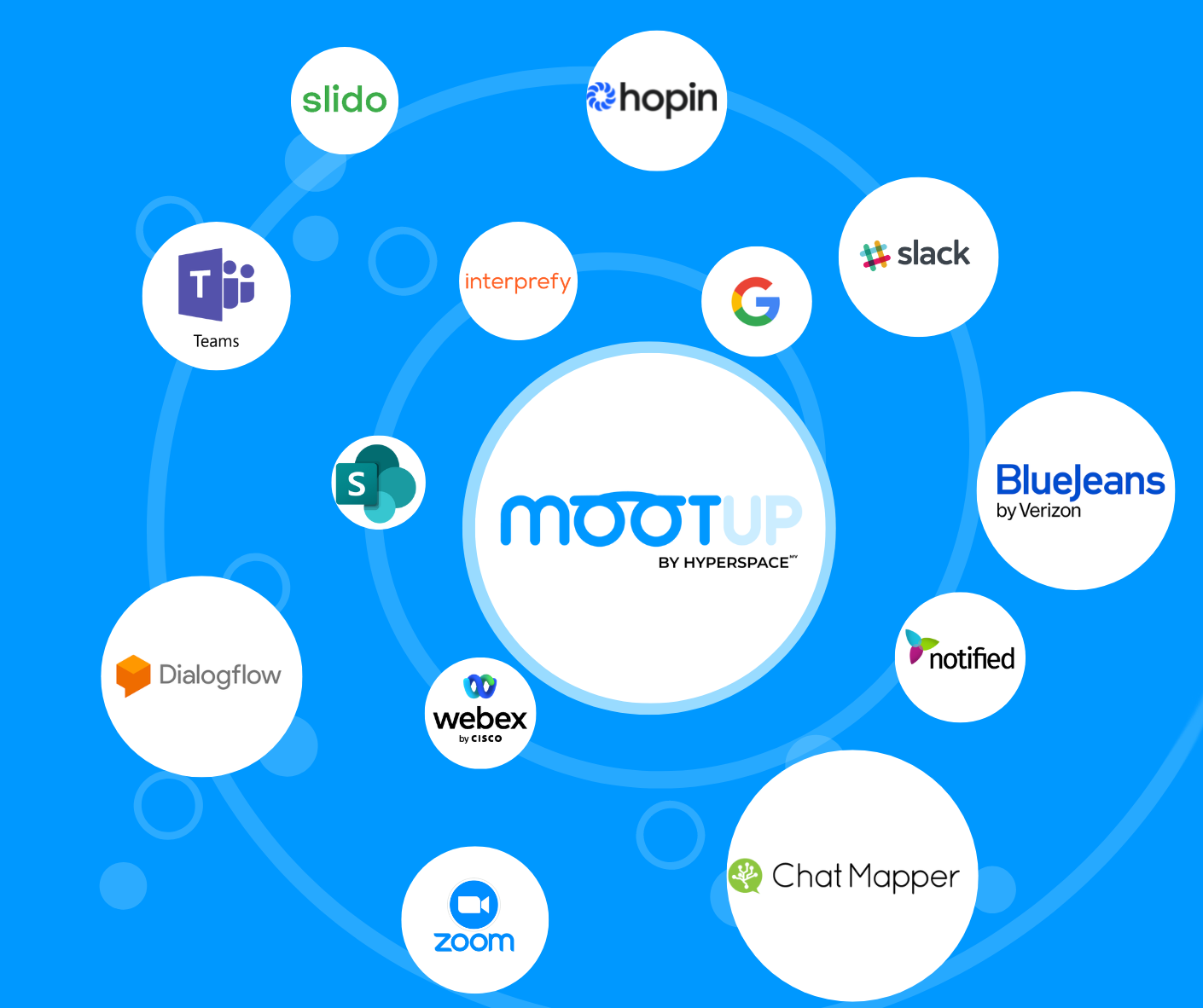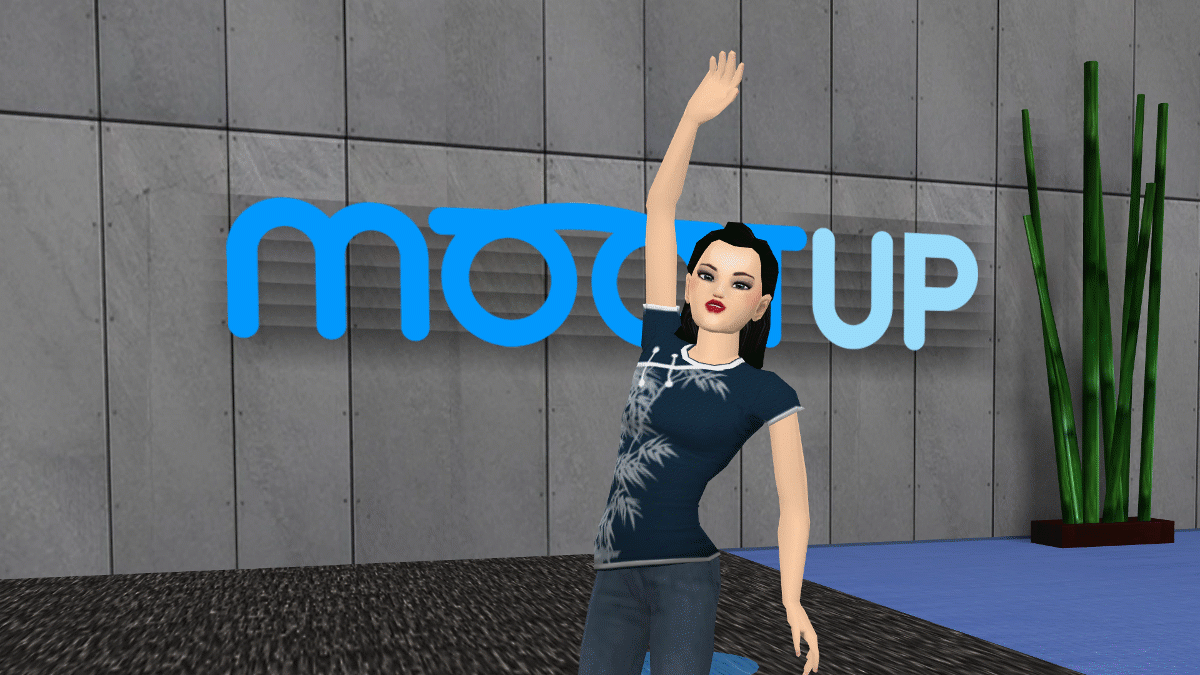Networking in virtual events has become an essential aspect of the event industry as professionals seek new ways to build connections and expand their professional network. However, networking virtually can be challenging for organizers and attendees.
This blog post will explore effective moderation techniques that enhance engagement during networking in virtual events. We’ll delve into the importance of moderators in online conference networking and discuss how to create engaging virtual event websites.
Furthermore, we will examine the utilization of breakout rooms and AI matchmaking tools to foster meaningful interactions among participants. Lastly, we will touch upon data collection strategies for lead capture and post-event analysis while providing insights on proactive engagement & follow-up strategies after attending or hosting successful networking events.
By implementing these tactics in your next virtual event, you can ensure a seamless experience that offers valuable opportunities for attendees to grow their networks even when they’re not meeting face-to-face.
Table of Contents:
- Effective Moderation for Virtual Networking Events
- Importance of moderators in online conference networking
- Creating engaging virtual event websites
- Utilizing Breakout Rooms and AI Matchmaking
- Data Collection and Post-event Analysis
- Proactive Engagement & Follow-up Strategies
- Frequently Asked Questions Networking in Virtual Events
- Conclusion
Effective Moderation for Virtual Networking Events
Managing virtual events effectively is crucial for successful networking. A moderator plays a key role in sparking discussions, ensuring etiquette rules are followed, and keeping participants engaged throughout the event. Engaging event websites with clear instructions on participating can help maintain attendee interest.
Importance of moderators in online conference networking
Moderators are essential in creating an interactive environment during virtual conference networking. They guide conversations by asking thought-provoking questions and encouraging attendees to share their insights or experiences. By setting the tone and maintaining a professional atmosphere, moderators ensure that everyone has an opportunity to contribute while also preventing any inappropriate behaviour or comments from disrupting the flow of conversation.
- Maintaining order: Moderators keep discussions focused and prevent off-topic distractions.
- Fostering inclusivity: Ensuring all voices are heard promotes diversity of perspectives within the discussion.
- Promoting engagement: Encouraging participation leads to more meaningful connections among attendees.
Creating engaging virtual event websites
An effective virtual event website is vital for attracting potential attendees and providing them with all the necessary information about your event. To create an engaging website that encourages registration, consider incorporating these elements:
- User-friendly design: A clean layout with easy navigation helps visitors find what they’re looking for quickly without frustration.
- Detailed agenda & speaker profiles: Showcase your lineup of speakers along with their expertise areas so people know exactly what they’ll gain from attending your event.
- Clear call-to-action: Make it easy for visitors to register or sign up for your event with a prominent registration button and a simple form process.
- Social media integration: Allow attendees to share their excitement about the event on social platforms, increasing visibility and generating buzz around your virtual conference networking opportunities.
Incorporating these elements into your website will attract more attendees and ensure they have a seamless experience while participating in your virtual networking events. By providing an engaging platform that facilitates interaction, you’ll create valuable connections among professionals in the industry.

Modifying virtual networking events is essential to ensure attendees have an enjoyable and productive experience. Utilizing breakout rooms and AI matchmaking can further enhance the overall quality of these events, providing a unique opportunity for attendees to connect in meaningful ways.
Key Takeaway:
A no-code platform is being developed to create and host virtual and hybrid events in the Metaverse. The topic of networking in virtual events will be explored, focusing on connecting attendees through interactive activities and engagement opportunities.
Utilizing Breakout Rooms and AI Matchmaking
Organizers can use breakout rooms where smaller groups discuss specific topics or engage in focused conversations to facilitate better interaction among participants during virtual conference networking sessions. This technique not only encourages attendees to express their ideas but also assists them in making connections with those who have similar interests. Additionally, AI matchmaking analyzes attendees’ profiles and preferences to suggest potential connections or discussion topics tailored specifically for them.
Benefits of Using Breakout Rooms at Virtual Events
- Promotes active participation: Some participants may hesitate to speak up in a large group setting. Breakout rooms create a more intimate environment that encourages everyone to contribute ideas and opinions.
- Fosters meaningful connections: Smaller group discussions allow attendees to delve deeper into specific subjects, enabling them to form stronger bonds based on shared interests.
- Increase attendee satisfaction: Providing opportunities for targeted interactions can lead to higher engagement and overall satisfaction with the virtual event experience.
Enhancing Networking Experiences through AI Matchmaking
AI has drastically changed how we approach virtual events, allowing for tailored experiences that suit each attendee. Here are some ways in which AI matchmaking can enhance networking at virtual conferences:
- Suggests relevant contacts: An intelligent algorithm scans attendee profiles and recommends people with similar professional backgrounds or interests as potential networking partners.
- Finds compatible discussion groups: If your event offers multiple parallel sessions or tracks, an AI-powered tool can help attendees identify the most relevant ones based on their preferences and objectives.
- Facilitates post-event follow-ups: By tracking interactions during the event, AI matchmaking can suggest personalized action items for each participant, such as reaching out to specific contacts or exploring additional resources related to a particular topic.
Incorporating breakout rooms and AI matchmaking into your virtual events will create more engaging networking opportunities and ensure that participants leave with valuable connections and insights. By leveraging these tools, you can elevate your online conference experience and make it as impactful as in-person gatherings.

Breakout rooms and AI matchmaking are powerful tools for creating meaningful connections at virtual events. At the same time, data collection and post-event analysis can help you make informed decisions for future events. With the right lead capture tools, event professionals can gain valuable insights from their analytics to optimize their next event.
Key Takeaway:
A no-code platform is being developed to create and host virtual and hybrid events in the Metaverse. The topic of networking in virtual events will be explored, focusing on connecting attendees through digital means.
Data Collection and Post-event Analysis
Successful virtual networking involves using lead capture tools such as registration forms or post-event surveys which collect valuable data about attendees’ interests and preferences. This information helps plan future events tailored towards those needs while also providing insights into the success of current ones through collected analytics.
Lead Capture Tools for Effective Data Collection
To make the most out of your virtual event data collection, it’s essential to utilize various lead capture tools that can gather crucial information about your attendees. Some popular options include:
- Registration Forms: Collect attendee details during the registration process, such as their job title, company name, industry sector, and specific interests related to the event topics.
- Email Opt-ins: Offering an option for participants to sign up for newsletters or updates on upcoming events from your organization.
- Polls & Surveys: Engaging with attendees by asking them relevant questions throughout the event or conducting a post-event survey to gather feedback on their experience and suggestions for improvement.
- Social Media Engagement: Encourage participants to share their thoughts and experiences using designated hashtags or mentioning your organization’s social media handles to track online conversations around your virtual networking events.
Leveraging Analytics to Improve Future Events
Analyzing collected data is vital in understanding how well you’re meeting attendee expectations at virtual networking events. By examining key metrics like attendance rates, session engagement levels, poll responses, chat activity, etc., organizers can identify areas where improvements are needed before planning subsequent gatherings. Here are some ways to use analytics to enhance future events:
- Identify Popular Topics: Analyze the most attended sessions or discussions with high engagement rates to determine which topics resonate best with your audience. This can help you curate more relevant content and speakers for upcoming virtual conferences.
- Evaluate Networking Opportunities: Review chat logs, breakout room interactions, and post-event survey responses to assess whether attendees could make meaningful connections during the event. If not, consider implementing new strategies like AI matchmaking or additional networking rooms in future gatherings.
- Determine ROI: Track attendee conversion rates from registration forms, email opt-ins, and social media engagements to measure how well your marketing efforts are paying off. Use this information as a benchmark when setting goals for subsequent online events.
Incorporating data collection methods into your virtual event planning process is crucial in understanding what works best for your target audience while also providing valuable insights to improve future networking opportunities at both online and hybrid events.
Data collection and post-event analysis are essential for understanding the success of any event. Proactive engagement and follow-up strategies can help ensure that your virtual or hybrid events continue to be successful.
Unleash the full potential of your Metaverse with MootUp‘s 100+ integrations, seamlessly connecting with popular tools such as Zoom, Hopin, Cornerstone OnDemand, Articulate, Slack, and more, amplifying your virtual experiences with the tools you already know and love.
Key Takeaway:
A no-code platform is being developed to create and host virtual and hybrid events in the Metaverse. The topic of networking in virtual events will be explored, focusing on ways to connect with others through digital means.
Proactive Engagement & Follow-up Strategies
To build lasting connections from attending a virtual event, individuals must be proactive by initiating conversation with thought-provoking questions that encourage others to open up to themselves. Paying full attention during interactions demonstrates genuine interest; following up afterward shows commitment towards maintaining these new relationships formed within this setting further down the line.
Prepare Thought-Provoking Questions and Icebreakers
Before attending a virtual networking event, take some time to research the topics being discussed and prepare relevant questions or icebreakers. This will help you engage more effectively with other attendees and showcase your expertise in the subject matter. A well-thought-out question can lead to meaningful conversations and help you stand out among other participants.
Maintain an Active Presence on Social Media Platforms
Social media platforms, such as LinkedIn, Twitter and Facebook, are beneficial for maintaining contact with your professional circle before the event, during and after its conclusion. By sharing insights from the event or engaging in discussions related to its content on social media channels, you can demonstrate your active participation while connecting with like-minded professionals who may have attended or followed along online.
- LinkedIn: Share key takeaways from sessions you attended or join groups dedicated to discussing specific topics covered at the conference.
- Twitter: Use designated hashtags for live-tweeting highlights of presentations or panel discussions; follow speakers’ accounts for additional information about their work.
- Facebook: Join industry-specific groups where members share resources related to recent events they’ve participated in— this is an excellent way of expanding one’s professional network beyond those who were physically present at the event.
Follow Up with New Connections Promptly
After attending a virtual networking event, following up with new connections within a reasonable timeframe is crucial. This demonstrates your commitment to building and maintaining relationships while also keeping the momentum going from conversations held during the event. A simple email or LinkedIn message expressing gratitude for their time and interest in further discussing shared topics can go a long way in solidifying these newly formed connections.
Incorporating proactive engagement strategies into your approach towards virtual events networking will help you build valuable connections and maximize the return on investment of your time spent participating in such events. By preparing thought-provoking questions, leveraging social media platforms, and following up promptly after events, you’ll be well on your way to expanding your professional network and reaping the benefits of successful online conference networking.
Key Takeaway:
A no-code platform is being developed to create and host virtual and hybrid events in the Metaverse. The topic of networking in virtual events will be explored, focusing on building connections and relationships within these digital environments.
Frequently Asked Questions Networking in Virtual Events
How do you network in virtual events?
To network effectively in virtual events, prepare ahead of time by researching attendees and setting goals. Utilize technology such as video conferencing tools and social media platforms to engage with others. Take advantage of networking opportunities during the event, like breakout sessions or chat rooms, and follow up with new connections afterward.
What is the purpose of a virtual networking event?
The purpose of a virtual networking event is to provide professionals with an opportunity to connect, collaborate, and build relationships within their industry without physical limitations. These events offer increased reach, cost savings, flexibility, and convenience for participants while still fostering engagement and interaction among attendees.
Can networking be done virtually?
Yes, networking can be done virtually through various online platforms such as video conferences or webinars that facilitate communication between individuals. One can create meaningful professional connections remotely by leveraging these technologies and social media channels for promotion and engagement purposes,
What are some tips for effective virtual networking?
- Prepare ahead of time
- Leverage technology (video conferencing tools & social media)
- Fully participate in available activities
- Maintain a professional presence online
- Prioritize quality over quantity when building connections
- . Forbes – Five Tips For Networking In Virtual Events
Conclusion
Networking in virtual events can be a powerful way to build relationships and create meaningful connections. With the right strategies, best practices, and tips for networking virtually, you can maximize your event experience with confidence. Networking is an important component of any successful virtual event, so capitalize on the special chances for connection with such gatherings.
Elevate your Metaverse to be “futureproof” with MootUp – a browser-based platform that allows access from smartphones, tablets, laptops, and VR/AR headsets without downloading or software installation, ensuring seamless access across devices.
Join us on MootUp to create and host your next virtual or hybrid event in the Metaverse. Our no-code platform makes it easy for professionals of all levels to launch their own events with ease quickly easily.

